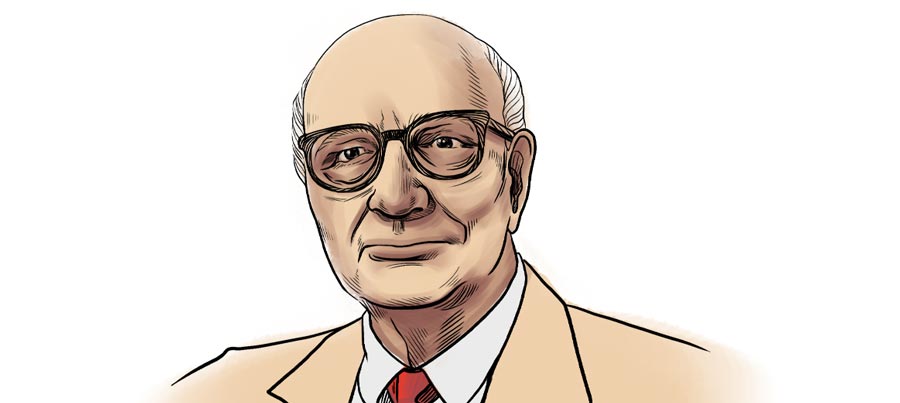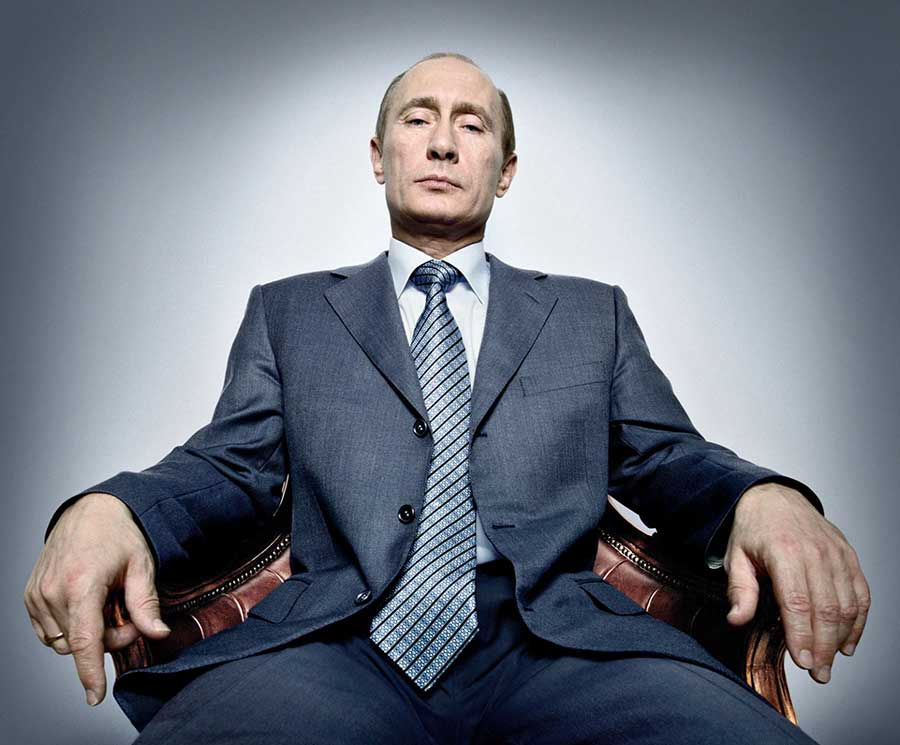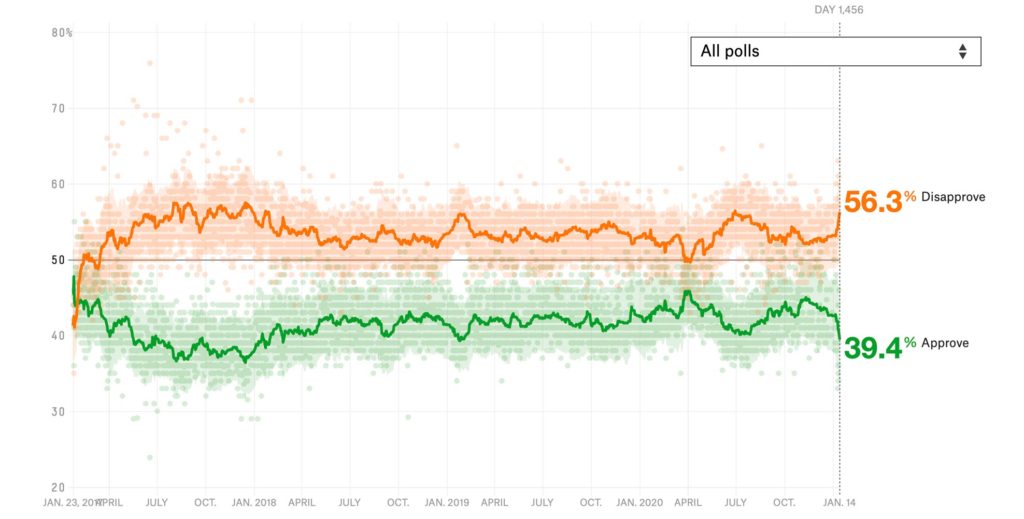I’ve just read a phenomenally interesting book, one of those rare books that really reshapes one’s view of the world and of history. It also helps answer a conundrum that I have never previously been able to satisfactorily resolve which is – what made Europe special? Why did the Enlightenment, most aspects of modernity and then the industrial capitalism first appear in Europe and not elsewhere?
The book is “The Weirdest People in the World: How the West Became Psychologically Peculiar and Particularly Prosperous” by Joseph Henrich. The acronym WEIRD was coined by Henrich and it stands for ‘Western Educated Industrialised Rich Democratic’, but he is an amusing writer and often plays around with the more usual meaning of the word stressing that in the context of human global history it is Europe, it’s society and its common psychological patterns that are the outliers. It’s Europe that’s weird. In making these arguments Henrich brings together a deep expertise in a range of fields including anthropology (he brings a mass of field work data to the book), psychology, economics and history. The result is a unique set of arguments drawing on multiple fields.
I decided to read Henrich’s book because a number of things had come together to pique my interest in the issue of the social and ultimately political impact of kin and clan based social systems. I had come across articles talking about how historically unusual western marriage systems were and wanted to know more. I had also noted that the Pakistani rape gangs in the UK had mostly been clan based groups and how noticeable it was that the convicted perpetrators were not ostracised by their families or clans. This seemed connected to clan based notions of shame, in which to do such a thing inside the clan would be shameful but doing it to children outside both the clan and the religion was not shameful. I also became aware that in many parts of the UK we had imported and embedded quite large communities with very concentrated clan culture, along with practices like widespread cousin marriage, and that the Labour Party was now dependent on these communities for votes in many constituencies. This meant Labour and the broader Left often did business with, and secured political support from, clan leaders. This practice, of importing fairly large clan based communities into the UK and then for the political leaders, in particular from the Left, to uncritically seek out alliances with clan leaders, seemed to me to be deeply problematic. Generaly the Left hardly seems to notice clan systems and their social implications, it seems as if the Left are in seeking out communal electoral support to be responding in an opportunistic but deeply ill informed way. I think this is dangerous. What I was looking for was a deeper historical analysis of how clans operated socially and how that related to politics and culture in a modern western liberal democracy.
So I was ready for this book, and what a joy it has been to read.
Henrich starts by introducing the central thesis of the book: that people from Western, Educated, Industrialised, Rich, and Democratic (WEIRD) societies are psychological outliers compared to the rest of humanity, both historically and globally. He argues that much of modern psychology is based on studies of WEIRD populations, which skews our understanding of human behaviour and cognition, as these groups are not representative of the broader human experience. He proposes that these psychological differences didn’t arise by accident. Instead, they are the products of specific historical and cultural developments, particularly influenced by the institutions and practices of the Western Christian Church in Europe during the Middle Ages. He argues that cultural evolution, rather than biological evolution alone, has profoundly shaped modern WEIRD psychology and hence WEIRD societies. Henrich emphasises that understanding these differences is crucial for fields like psychology, economics, politics and anthropology, which often assume WEIRD traits are universal.
Henrich begins by highlighting how WEIRD individuals differ in fundamental ways compared to more collectivist, holistic, and kin-based norms found in most other societies both in history and outside of Europe today, and how there is much greater individualism, analytical thinking, and impersonal trust amongst WEIRD populations. He provides many examples and a lot of data from psychological experiments showing that WEIRD people perceive the world differently that people from Kin/clan cultures and these differences are shaped by their cultural environment and history rather than universal human nature.
Henrich describes how, for much of human history, societies were organised around extensive kinship networks and clans—tightly knit, intergenerational groups defined by blood ties and marriage alliances. These systems were not just social arrangements but survival strategies, providing security, resource sharing, and collective defence in a world without strong centralised institutions. All previous societies prior to late Roman and early medieval western Europe were saturated with kin and clan relationships, this was as true for hunter gather societies as it was for later large developed empires. Henrich deploys a lot of very detailed data, ranging from modern anthropological and psychological studies as well as historical records to persuasively argue this point. Even huge pre-modern empires sat on, were in fact built on top of, a deep fabric of kin and clan relations.
The nature of kin-based institutions affects how people think about themselves, their relationships, their motivations, and their emotions. By embedding individuals within dense, interdependent, and inherited webs of social connections, intensive kinship systems regulate people’s behaviour in subtle and powerful ways. These norms motivate individuals to closely monitor themselves and members of their own group to make sure that everyone stays in line. They also often endow elders with substantial authority over junior members. Successfully navigating these kinds of social environments favours conformity to peers, deference to traditional authorities, sensitivity to shame, and an orientation toward the collective (e.g., the clan) over oneself.
These non-WEIRD societies were characterised by:
– Intensive Kinship: Relationships were governed by complex rules about who could marry whom, often prioritising cousin marriage (e.g., parallel or cross-cousin unions) to keep wealth and loyalty within the family or clan. This reinforced interdependence and solidarity, as individuals’ identities were deeply embedded in their lineage rather than as standalone agents.
Clan Dominance: Clans functioned as corporate entities with their own norms, hierarchies, and obligations. Loyalty to the clan trumped loyalty to outsiders, and disputes were often resolved internally rather than through impersonal laws. This created “segmentary lineages,” where smaller family units could unite into larger coalitions based on shared ancestry, especially during conflicts.
Psychological Implications: This structure fostered a collectivist mindset, where conformity, obedience to elders, and shame (as a social enforcement mechanism) were paramount. Trust was high within the kin group but low toward strangers, limiting cooperation beyond immediate relatives or allies.
The Western Europe mutation – The church’s Marriage and Family Program (MFP)
Then starting in the later western Roman Empire and running through the post Roman and early medieval period the Western Church began a systematic and centuries long campaign in western Europe, which the book labels the church’s Marriage and Family Program (MFP), to systematically dismantle this entire marriage/kin/clan based social system. This was an historically revolutionary and unique event, and it has had enormous repercussions which set western Europe on a new and novel developmental pathway.
Henrich argues that the Catholic Church’s Marriage and Family Program (MFP), starting around the 4th century and intensifying through the medieval period, systematically dismantled these kin-based systems in Europe through a long series of prohibitions, edicts and policies. These included
– Ban on Cousin Marriage: The Church progressively outlawed marriage between cousins, eventually extending the prohibition to sixth cousins or beyond. This was very unusual compared to other cultures (for example Islamic societies permitted first-cousin marriage) and broke the cycle of reinforcing kin ties through arranged marriage unions. Henrich suggests this wasn’t just theological but a power play—weakening clans reduced rivals to Church authority.
– Prohibition of Polygamy and Concubinage: By enforcing monogamy and discouraging multiple partners or informal unions, the Church further eroded the ability of powerful men to create sprawling kinship networks through multiple wives or heirs.
– Encouragement of Individual Choice: The Church promoted voluntary marriage based on consent rather than arranged unions dictated by family elders. This shifted agency from the collective to the individual, planting what were in effect the first seeds of personal autonomy. The Church’s strict enforcement of monogamy and bans on remarriage (even for widows in some periods) reduced the number of heirs in many families. Couples who were prohibited from marrying kin or who faced infertility had fewer options to produce legitimate offspring. Without heirs, land and wealth couldn’t be passed down within the extended family network and extended clan/kin wealth could not be accumulated.
– Church as Heir: Traditional societies often had collective inheritance systems where land was held by the clan or redistributed among kin. The Church pushed for more individualised inheritance, such as bilateral succession (to both sons and daughters), which diluted clan control. This shift made it easier for property to slip out of family hands. It also sowed the seeds of an unusual new concept of the absolute right to individually hold land as private property.
The Church actively encouraged childless couples—or individuals nearing death—to donate their estates to the Church as a pious act, promising spiritual rewards like salvation or prayers for their souls. Henrich notes that this became a significant source of land acquisition, especially in a society where having no heirs was increasingly common due to MFP restrictions. The Church positioned itself as a legitimate “heir” in the absence of kin successors. Medieval wills frequently show land and wealth being left to monasteries, bishoprics, or the Church at large, especially when familial lines faltered. The church taught that wealth made entry to heaven harder but that salavation could be bought by endowments to the church. As this change to transmision routes of inherited wealth weakened the economic power of clans it prevented them consolidating enough power to challenge the Church or rival its land holdings. This left the Church as one of the largest landowners in Europe by the High Middle Ages. By the 11th century, the Church owned vast swathes of Europe—up to a third of cultivable land in some regions like France or England. Much of this came from donations by families without heirs or from widows encouraged to “gift” their estates. Monasteries, often beneficiaries of MFP-driven bequests, became economic powerhouses, managing estates, rents, and agricultural production. Henrich notes that regions with longer exposure to the Church’s marriage rules (e.g., Western Europe) saw greater Church wealth compared to areas where kin-based systems persisted (e.g., Eastern Europe or the Eastern Empire where the MFP was much weaker).
The church’s Marriage and Family Program (MFP) had a cascading effect on European social structure
The MFP set in motion profound changes to how how people lived their lives and ultimately to how society functioned in Western Europe
These changes included:
Fragmentation of Kin Networks: Without cousin marriage or polygamy to bind families together, kinship ties became shallower and less extensive. Over centuries, the average European’s “kin radius” shrank, leaving nuclear families (parents and children) as the primary unit rather than sprawling clans.
Rise of Voluntary Associations: As clan loyalty weakened, people began forming relationships beyond kin—guilds, monasteries, and eventually towns, universities and markets. This required broader trust and cooperation with non-relatives, fostering what Henrich calls “impersonal prosociality.”
Shift in Identity: With clans no longer the organising principle, individuals increasingly defined themselves as individual defined by personal attributes, ambitions, achievements, or affiliations rather than lineage. This individualism was a radical departure from the kin-centric identity of most human societies.
Henrich argues that the deconstruction of clans didn’t just change social organisation—it rewired psychology. When relational bonds are fewer and weaker, individuals need to forge mutually beneficial relationships, often with strangers. To accomplish this, they must distinguish themselves from the crowd by cultivating their own distinct set of attributes, achievements, and dispositions. Success in these individual-centred worlds favours the cultivation of greater independence, less deference to authority, more personal guilt, and more concern with personal achievement.These social and psychological and ultimately institutional changes, that occurred over decades and centuries, all fed back into each other in a series of feedback loops that drove western European society down a unique historical development pathway.
Post-MFP psychological and social changes
These post-MFP psychological and social changes included:
– From Shame to Guilt: In clan-based societies, behaviour was regulated by external shame—fear of dishonouring the group. Actions outside the clan carried much less shame than actions inside the clan. As kin ties weakened, internalised guilt (a sense of personal responsibility) in a universal and very wide religious community, became paramount. This emphasis on the individual sense of self and personal guilt aligned with Christian teachings about individual sin and salvation and was quite different to the collectivist notion of group shame of kin/clan based societies.
Analytical Thinking: Reduced reliance on kin encouraged people to think beyond relational roles and toward abstract, universal principles—skills vital for science, law, and commerce. This was because without the matrix of kin/clan systems individuals had to calculate their own individual life path in a complex world often interacting with unrelated strangers. This required careful thought and analysis.
Trust and Fairness: Interacting with strangers in markets or civic institutions favoured traits like fairness and trust in impersonal settings, contrasting with the kin-biased morality of clan systems. Europeans became more trusting of strangers, more future-oriented, and more inclined to cooperate in large, impersonal groups. Henrich connects this to the development of “impersonal prosociality”—a willingness to follow universal rules and engage with people beyond family or tribe.
The growth of manorialism: In clan societies, power and wealth were tied to lineage and alliances, not just land ownership. Land was a collective asset, and authority came from kin solidarity. By weakening clans, the MFP untethered land from kinship control. Nuclear families couldn’t maintain the same level of collective land management or defence, and the Church’s encouragement of individual inheritance (e.g., to sons and daughters) further fragmented holdings. Previously clans could mobilise extended kin for farming, defence, and mutual aid, reducing reliance on outsiders but all that was now eroded. The MFP fostered the creation of isolated nuclear families which lacked the manpower and resources of clans. They couldn’t independently sustain large-scale agriculture or protect themselves in a chaotic post-Roman world. This dependence helped drive peasants to the manor, where lords provided tools, seed, and protection in exchange for labor. The manorial system thrived on this labor surplus, as nuclear families—unlike clans—couldn’t opt for self-sufficiency.
The nature of old kin-based institutions affects how people think about themselves, their relationships, their motivations, and emotions. By embedding individuals within dense, interdependent, and inherited webs of social connections, intensive kinship norms regulate people’s behaviour in subtle and powerful ways. These norms motivate individuals to closely monitor themselves and members of their own group to make sure that everyone stays in line. They also often endow elders with substantial authority over junior members. Successfully navigating these kinds of social environments favours conformity to peers, deference to traditional authorities, sensitivity to shame, and an orientation toward the collective (e.g., the clan) over oneself.
By contrast, when relational bonds are fewer and weaker, individuals need to forge mutually beneficial relationships, often with strangers. To accomplish this, they must distinguish themselves from the crowd by cultivating their own distinct set of attributes, achievements, and dispositions. Success in these individual-centred worlds favours the cultivation of greater independence, less deference to authority, more guilt, and more concern with personal achievement. The Western Church had inadvertently induced a series of social and psychological shifts that had profound and unforeseen consequences . Without intensive kin-based institutions to organise production, provide security, and endow people with a sense of meaning and identity, individuals were both socially compelled and personally motivated to relocate, seek out like-minded others, form voluntary associations, and engage with strangers.
The erosion of kinship ties had a ripple effect. Without strong clan allegiances, individuals had to forge new social and economic relationships beyond their immediate families. Henrich argues that this shift encouraged the development of voluntary associations—guilds, confraternities, universities and eventually town councils—where people cooperated based on shared interests rather than blood ties. In medieval Europe, particularly from the 10th to 13th centuries, towns began to emerge as economic hubs, often seeking independence from feudal lords. The Church’s policies, by fostering a more individualistic and less tribal mindset, created a population more inclined to participate in these impersonal, trust-based institutions.
Much of the last third of the book is an account of the historically widespread cascading effects of the dismantling of clan and kin systems and the impact this had on development in a range of fields. Here are just three examples (there are many others in the book):
Law
With weaker kinship ties, individuals became less embedded in collective family units and more independent, fostering “WEIRD” (Western, Educated, Industrialised, Rich, Democratic) psychology—traits like individualism, trust in strangers, and a sense of fairness beyond familial boundaries. As people increasingly interacted outside their kin groups, they relied more on impersonal institutions, such as markets and courts, to regulate behaviour and resolve disputes.
The connection to equality under the law emerges here. In kinship-heavy societies, justice was often dispensed by local leaders or family elders, with rulings favouring their own group. The Church’s MFP, by breaking down these networks, created a social environment where impersonal rules and institutions could take root. Henrich points to historical evidence, like the rise of medieval European legal codes and charters, which began to emphasise universal rights and obligations over customary, kin-based law. Meanwhile the Church’s insistence on monogamy and inheritance rules (e.g., limiting polygamous heirs) levelled the playing field, reducing the concentration of power in elite lineages and encouraging broader societal norms of fairness.
Moreover, the Church itself modelled a bureaucratic, rule-based system that influenced secular governance. Its canon law applied uniformly to clergy and laity alike, setting a precedent for laws that transcended personal or familial status. Over time, this contributed to the idea that all individuals, not just the privileged, could be equal under a shared legal framework—a concept that gained traction in Europe and later fuelled the Enlightenment and eventually democratic ideals.
Henrich supports this with data showing how regions under the Church’s MFP influence longer (e.g., Western Europe) developed stronger impersonal institutions and greater equality under the law compared to areas where kinship systems persisted. He suggests that this wasn’t an intentional goal of the Church but an unintended consequence of its marriage policies, which rewired social psychology and transformed social practice paving the way for modern legal equality.
In short, Henrich argues that the Church’s Marriage and Family Program dissolved the kinship structures that perpetuated favouritism and inequality, replacing them with a more individualistic society where impartial laws could flourish, ultimately shaping the West’s unique historical trajectory toward equality under the law.
Markets and Commerce
Traditional societies, with their strong kinship networks, were ill-suited for widespread intensive commercial activity. It’s not that commercial activity could not take place in such societies but more that commercial dynamism was continuously stunted and hemmed in by the barriers of kin based systems. In these systems, social and economic life revolved around extended families or clans, often reinforced by practices like cousin marriage, which concentrated wealth and loyalty within tight-knit groups. Trust was limited to kin, and it was hard for economic interactions—such as trade or lending— to extend beyond the family or immediate community. Some geographically dispersed communities with strong kin connections, such as the Jewish diaspora, could facilitate long distance commercial activity to some extent by creating geographically extended kin based trust systems but overall kin and clan structures stifled the development of markets, as people were reluctant to engage with strangers, and resources often stayed locked within familial alliances rather than circulating freely.
The Church’s MFP, implemented from the 4th century onward, disrupted this pattern by prohibiting cousin marriage and enforcing monogamy, weakening the power of clans and extended families over time. Henrich argues that this forced individuals to look beyond their kin for social and economic relationships, creating a more fragmented, nuclear-family-based society. With fewer obligations to large kinship groups, people became more mobile and independent, both geographically and socially—a shift that encouraged interactions with unrelated individuals.
This social reconfiguration had a direct impact on the growth of markets. As kinship ties loosened, trust could no longer be confined to family; it had to extend to strangers. Henrich highlights how the Church’s policies cultivated what he calls “WEIRD” psychology—traits like greater individualism, impartiality, and a willingness to cooperate with outsiders. These traits were essential for market economies, which depend on people trusting that contracts will be honoured, goods will be delivered, and disputes will be resolved fairly, even among those without personal ties. He points to evidence like the proliferation of medieval European trade guilds and urban charters, which emerged in regions where the Church’s influence was strongest and kinship networks weakest.
The MFP also spurred economic activity by altering inheritance and resource distribution. In kinship-heavy societies, wealth often stayed within clans through practices like polygamy (which multiplied heirs within elite families) or strategic marriages. The Church’s insistence on monogamy and restrictions on close-kin unions broke this cycle, dispersing wealth more broadly and reducing the hoarding of resources by powerful lineages. This created a more level economic playing field, encouraging individuals to seek prosperity through trade, craftsmanship, or other market-based pursuits rather than relying solely on family inheritance.
Henrich further ties this to the rise of impersonal institutions that supported commerce. As kinship declined, people turned to courts, guilds, and early banking systems to regulate transactions—systems that depended on the Church’s earlier modelling of rule-based governance. For instance, the Church’s canon law and its emphasis on universal norms helped normalise the idea of standardised rules for economic exchange, paving the way for commercial law. Markets flourished in this environment because participants could rely on enforceable agreements rather than personal loyalty.
Historical data backs Henrich’s claim: regions under the Church’s influence longer, like Western Europe, saw earlier and more robust development of trade networks, such as the Hanseatic League, compared to areas where kinship systems persisted. He also notes the timing as market expansion accelerated in the Middle Ages as the sustained MFP project to dismantle the kin and clan system reaches its culmination.
In essence, Henrich argues that the Church’s Marriage and Family Program broke the stranglehold of kinship on social and economic life, fostering a society of independent individuals who trusted and traded with strangers. This shift unleashed the psychological and institutional foundations for markets and commercial activity, setting Western Europe on a path toward economic prosperity that distinguished it from much of the world.
Urbanisation and self government
In traditional societies, extended families and clans, often reinforced by practices like cousin marriage, kept individuals tied to rural, agrarian lifestyles and localised power structures. Loyalty was to the kin group, and social organisation revolved around familial hierarchies rather than broader communities. This made large-scale urban living and governance difficult, as people prioritised their clan over collective civic projects and rarely ventured far from ancestral lands. Even those empires which featured large imperial cities were still overwhelmingly rural, cities were an urban crust sitting atop a much bigger rural kin/clan base.
The Church’s MFP, starting around the 4th century, disrupted these patterns as it banned cousin marriage and enforced monogamy, this weakened the tight-knit kinship networks that anchored people to rural clans. Over generations, this led to smaller, nuclear families and a more fragmented social landscape. Henrich argues that without the obligations and safety nets of extended kin, individuals became more independent and mobile—both physically and socially. This mobility drove urbanisation, as people left rural areas to seek opportunities in growing towns and cities, where they could form new social and economic ties beyond family.The church’s Marriage and Family Program had by 1000AD completely dismantled the kin/clan system in Western Europe and after that date towns and cities begin to rapidly proliferate and grow.
The growth of towns and cities, in turn, depended on this MFP driven shift. Urban life required cooperation among unrelated individuals, something kinship-based societies struggled to sustain. Henrich points to the psychological changes fostered by the MFP—part of what he calls “WEIRD” traits, like trust in strangers, impartiality, and a sense of fairness—which made it possible for diverse groups to live and work together in dense populations. Historical evidence supports this: urban centres like those in medieval Italy and the Low Countries flourished in regions where the Church’s influence had eroded kinship ties most thoroughly.
This urban expansion also necessitated new forms of civic governance. In kinship-heavy societies, authority rested with clan leaders or elders, and disputes were settled within family networks. As these structures faded under the MFP, towns needed systems to manage a population of unrelated individuals. Henrich argues that the Church’s policies indirectly catalysed the rise of self-governing institutions, such as town councils, charters, and guilds. These bodies relied on impersonal rules rather than familial loyalty, reflecting the broader societal shift toward universal norms—a process the Church had already modelled through its own bureaucratic governance and canon law.
For example, Henrich highlights the emergence of medieval communes—self-governing urban entities—where citizens elected leaders and established legal codes. These developments were rare outside Western Europe and coincided with the long-term effects of the MFP. The Church’s levelling of social hierarchies (e.g., by limiting polygamy and clan-based inheritance) also meant that power was less concentrated in elite families, opening space for broader participation in civic life. This laid the groundwork for participatory governance, an early precursor to modern democratic systems.
Additionally, the economic dynamism tied to the MFP further fuelled urban growth. As people engaged in trade and crafts, towns became hubs of commercial activity, attracting more residents and requiring structured governance to regulate markets, property, and public order. Henrich notes that regions with longer exposure to the Church’s marriage rules, like northern Italy, saw earlier and more robust urban development compared to areas where kinship persisted such as Southern Italy which was not brought under the Western Church until much later (it was previously Byzantine and Islamic).
In summary, Henrich argues that the Church’s Marriage and Family Program broke down the kinship barriers that tethered people to rural, clan-based life, unleashing a more individualistic and mobile population that gravitated toward towns and cities. This urban shift demanded and enabled new civic governance models based on impersonal cooperation and universal rules, distinguishing Western Europe and shaping its peculiar path toward modernity.












